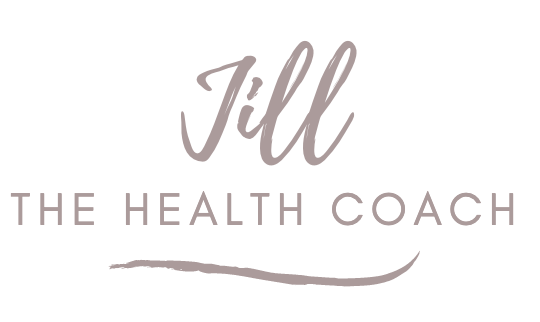Fear not as there are some simple guidelines to avoid these risks.
AVOID WELL COOKED MEATS
Researchers at University of Minnesota analyzed data on the cooking methods, amount of meat eaten and the doneness of meat for nearly 63,000 participants. They found that those who preferred their steaks well-done and who used grilling and other high-heat cooking methods were about 60% more likely to develop pancreatic cancer than those who cooked their meat at a lower temperature and/or for less time.
Other studies have confirmed that the high heats used in grilling increase the risk for a variety of cancers, including cancers of the colon and rectum.
AVOID COOKING TOO HOT AND TOO LONG
Grills that burn gas, briquettes or hardwood charcoal easily can achieve temperatures of 500°F or more…covered ceramic grills can exceed 1,000°F. High heats are ideal for searing meats and sealing in the juices, but prolonged cooking at high temperatures produces dangerous chemical by-products.
Heterocyclic amines (HCAs) are formed when animal proteins, including the proteins in meat, chicken and fish, are cooked at high temperatures for extended periods. “The Report on Carcinogens,” produced by the National Toxicology Program, lists IQ (one type of HCA) as a compound reasonably anticipated to cause cancer.
 Polycyclic aromatic hydrocarbons (PAHs), which are formed when the fat from cooking meat drips onto a heat source (such as hot coals or metal or ceramic “smoke bars”) and produces a smoky flare-up. Like HCAs, PAHs are thought to be potent carcinogens.
Polycyclic aromatic hydrocarbons (PAHs), which are formed when the fat from cooking meat drips onto a heat source (such as hot coals or metal or ceramic “smoke bars”) and produces a smoky flare-up. Like HCAs, PAHs are thought to be potent carcinogens.
Advanced glycation end products are chemical compounds that might increase the risk for cancer. They are produced at higher levels when foods are cooked at hot temperatures for prolonged periods.
AVOID EATING THE CHARRED PARTS OF MEATS OR VEGGIES
Yes, those black crispies on the meats and vegetables contain different types of carcinogens called acrylamides which can cause neurological damage as well as pose risks to various types of cancer.
- Marinate. Meat that is marinated for as little as 15 to 20 minutes prior to grilling produces up to 90% less HCAs than unmarinated meat. We don’t know why this happens. It might be because the acidic ingredients used in marinades, such as lemon juice and vinegar, change the molecular structure of meat protein and inhibit HCA production.
- Season with spices. Meats that are coated with antioxidant herbs and spices, such as rosemary, turmeric, ginger and cumin, as well as garlic, prevent HCA formulation during grilling than unseasoned meats.
- Cook at a lower temperature. For cancer prevention, the temperature of the grill is more important than the time on the grill. One study found that meats cooked at a lower-than-usual temperature but for two minutes longer had only about one-third of the HCAs as meat that was cooked at a higher temperature for a shorter time and to the same doneness. Keep in mind that you can still sear meat. Just move it to a cooler part of the grill…or raise the grill rack a few inches so that the meat is farther from the heat after searing. With gas grills, you can use the high-heat setting to quickly sear the meat, then lower the flames for slower cooking.
- Shorten the cooking time. Rare or medium rare is the safest way to go. This will produce significantly lower levels of HCAs than meat that’s well-done. When grilling a medium-rare steak, the internal temperature should be 145°F-that’s hot enough to kill disease-causing microorganisms but cool enough to limit the production of HCAs. A steak cooked to medium will be 160°F inside. Important: Always cook poultry to an internal temperature of 165°F to kill salmonella and other organisms.
- Cook lean to avoid flare-ups. Slicing off the visible fat from meats before grilling reduces fatty flare-ups and the production of PAHs. Also, avoid fatty cuts of meat (such as rib-eye steak), and choose lean beef for hamburgers.
- Grill more vegetables. HCAs are produced only when animal proteins are subjected to high-heat cooking…and PAHs are produced by fat drippings. You can help avoid both risks by adding grilled vegetables to the menu, such as onions, broccoli, mushrooms, zucchini, eggplant and peppers. I always brush or spray olive oil or coconut oil and sprinkle on salt and pepper. These delicious veggies provide the antioxidant fighting quality that fends off those nasty carcinogenic chemicals.
All material in this newsletter is provided for information only and may not be construed as medical advice or instruction. No action or inaction should be taken based solely on the contents of this publication;instead readers should consult appropriate health professionals on any matter relating to their health and well-being. The information provided has not been approved the Food & Drug Administration and is not intended to diagnose, treat, cure, or prevent any illness or disease.

CHHC, HHC, CNHP,
Digestive Health Specialist

